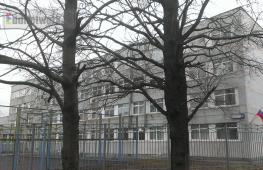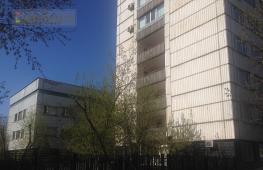University of Westminster London hostel. Entry requirements for the master's program
Westminster University was founded by Britain's first polytechnic in 1838. Since then it has developed into a university that combines both metropolitan and cosmopolitan dimensions, and which is actively involved in business, professional and academic life in London as well as abroad.
The University has always been, and continues to be, imaginative in recognizing new needs and developing appropriate offerings for its many target markets. The university also has a strong and historic commitment to equality and embracing diversity. As a place to work or to study, we strive to enhance our reputation as a welcoming and inclusive organization.
vision
The experience we offer
Energetic learning environment - stimulating innovation and creativity, informed practice, inspired research, focusing on globally relevant areas in which we excel.
The difference we make
The University of Westminster is building a new generation of highly employable global citizens to shape the future.
Our international reputation
As global university located in the City of Peace, we are home to over 5,000 students and 500 staff from overseas.
Westminster has a reputation for excellence in professionally relevant teaching and learning, and for high quality research. Offering over 300 degree courses, we focus on Special attention providing international opportunities for Westminster students in order to ensure that we provide an environment in which students can develop the skills, competencies and knowledge needed in the global economy.
We are proud of our long history of global relationships and have partnerships around the world - connections we are constantly striving to strengthen and deepen.
Our world-leading science, produced in partnership with global industry and educational institutions, makes a real impact in the world around us.
mission
The University of Westminster will shape the future of professional life:
- being a diverse, vibrant and inspiring learning environment
- establishing the University of Westminster as the lead teaching practice informed and research university
- being responsive, Metropolitan and cosmopolitan university meeting the needs of different communities
- embedding internationalization, get a job and green thinking in everything we do
Values
brave: We know that there is no innovation without risk. We are brave enough to question ideas, provoke new ways of thinking, erase the redundant and focus on those things in which we can excel.
Connected: We are one team. We are about trust, collaboration and collaboration across our various disciplines and around the world.
generous: We respect and celebrate diversity. With generosity of spirit, we appreciate emotional intellect as well as knowing, empowering each other and enabling our students to realize their potential.
Fine: We demand perfection. We understand the importance critical thinking, discipline and responsibility, and we expect the most high standards ourselves and our students.
stable A: Green thinking is at the heart of everything we do. Our shared goal is to respect the planet and we are committed to sustainable practices, both on the global stage and in our own work environment.
Westminster University one of the leading state British universities, whose patron is Her Majesty Queen Elizabeth II of England. Founded as the Royal Polytechnic Institute in 1838, the University of Westminster has been producing leading specialists in electronics and mechanics for over 170 years. computer technology, linguistics and journalism, management and business, art and design, construction, natural sciences, diplomacy and political relations. Students from over 150 different nationalities annually study within its walls for undergraduate, graduate and doctoral programs.
The University of Westminster has numerous research centers in all faculties, and is a member of the largest associations and associations in education, such as the Association of Commonwealth Universities, MBA Associations, the European Foundation for Management Development, the European Association of Universities and UK Universities. The main objective of such cooperation is the popularization of science and technology among young people and the demonstration of the latest technologies.
The university closely cooperates with many large enterprises, industrial organizations and banks, which is an excellent opportunity for its students to have an internship and gain valuable work experience with further employment in one of the international companies. Long before employment, students of the Faculty of Media Industry master the work of a publishing house and a radio station on the basis of student media - the newspaper The Smoke and the radio station Smoke Radio.
Studies have shown that 8/10 of Westminster University graduates are successfully employed immediately after graduation from the university. Moreover, 7 people out of this number occupy top management positions. This data is a direct reflection of the high quality of education that Westminster University provides. The university is also famous for its extracurricular activities - a rich sports and creative life and charitable and volunteer activities.
Location and equipment
The University of Westminster has 4 educational buildings, dispersed in the central part London. The main building is located in the heart of this amazing city - within walking distance from trafalgar square. Each of the four buildings houses one or more faculties.
The university management invests colossal funds in the restoration and repair of educational and residential buildings of the university, as well as its technical equipment. There are several libraries at the university, the funds of which store numerous scientific and artistic publications in printed form, as well as on audio and video media. The Internet, including wireless, online tutorials and multimedia lessons are completely familiar and even mundane amenities for Westminster students.
The university also treats the organization of leisure of its students with care. On the territory of the university there are:
- Numerous cafes;
- Canteens;
- The shops;
- Bank branches and ATMs;
- Closures and outdoor sports fields;
- Recreation areas;
- Places for self-study.
Studying programs
Within the walls of Westminster University, students can obtain a bachelor's, master's or doctoral degree in more than 200 specialties at one of 6 faculties:
- School of Science and Technology (Faculty of Science and Technology);
- School of Media, Art and Design (Faculty of Media, Arts and Design);
- School foreign languages, Social and Human Sciences (Faculty of Social Sciences and Humanities);
- School of Architecture and the Built Environment (Faculty of Architecture and the Built Environment);
- Law School (Westminster Law School);
- School of Business (Westminster Business School).
The duration of training may vary depending on the training program and is usually:
- 3-4 years for bachelors;
- 1-2 years for masters.
Admission conditions
For applicants from Russia, there is the following feature of admission: they cannot be enrolled in a university immediately after graduation due to the difference between Russian and British systems education. Unlike Russians, English schoolchildren spend not 11, but 13 years at their desks. Therefore, to become a student at Westminster University, you will have to make up for the missing two years of study. This can be done like this:
- Transfer to a university after a year of study at a Russian university;
- The preferred option is to study under a special Foundation Program or International Baccalaureate (IB) preparation program for admission.
Entry requirements for the bachelor's program:
- Age - from 17 years old;
- Start of the program - October;
- The presence of a certificate of secondary education with a high average score in subjects;
- Foundation Program or IB Certificate;
- IELTS scores of at least 5.5 or equivalent.
Entry requirements for the master's program:
- Age - from 21 years old;
- Start of the program - October;
- Possession of a higher education diploma;
- IELTS score of at least 6.0 or equivalent.
Accommodation and meals
Westminster University has 9 residences, 6 of which are located in the central part of London, 3 more - in some separation from the center. Accommodation in them is available only for full-time students. Each residence has rooms various types- for single and double occupancy, with a shared and private bathroom and kitchen, as well as penthouse-type rooms. Each room has:
- Single bed;
- Bedside table;
- Wardrobe for storing things;
- Cabinets for books and educational supplies;
- Workplace.
The kitchen has all the necessary household appliances for self-cooking and furniture, namely:
- Fridge;
- Plate;
- Microwave;
- Toaster;
- Kettle;
- Table set;
- Television.
Please note that the room rental contract is for a limited period of time (38 to 51 weeks). If you need to stay in it for a longer period, you will need to extend the contract.
If you do not want to live in one of the student residences or there are no free places left at the time of your application, the university will offer alternative accommodation options - the private sector, hotels and guest houses near your academic building.
University of Westminster
University of Westminster
Polytechnic of Central London
Educating for professional life (Education for professional life)
Coordinates : 51°31′01.2″ s. sh. 0°08′34.7″ W d. / 51.517° N sh. 0.142972° W d.(G) (O) (I)51.517 , -0.142972
Westminster University(English) University of Westminster, abbr. U.W. London, until 1992 - the Polytechnic Institute of Central London) - one of oldest universities Great Britain, located in the center of London. Founded in 1838 as the Royal Polytechnic Institute. In 1992, in accordance with the Acts of additional and higher education received university status.
More than 22 thousand students from 132 countries study at the university. The British newspaper The Guardian ranked the University of Westminster 55th out of 122 universities in the UK.
The London Diplomatic Academy was established at the university, where you can get a master's degree in international politics and diplomacy. With the participation of the University of Westminster, the International Westminster University in Tashkent was established in 2002.
The university also has a Student Union, which provides a wide range of services for students.
History
During its history, the University of Westminster has had four different names:
- Royal Polytechnic Institute (1838-1881)
- Regent Street Polytechnic (1881-1970)
- Polytechnic of Central London- abbr. PCL (1970-1992)
- University of Westminster(from 1992 to present)
1838-1881 Royal Polytechnic Institute
The Polytechnic Institute opened at 309 Regent Street, London, on 6 August 1838 under the direction of the eminent scientist, the aeronautical engineer Sir George Cayley. The main task educational institution was to demonstrate to the public new technologies and inventions. The Institute played an important role in the popularization of science and technology. It became a major attraction in Victorian era London.
1839
The Polytechnic was the first institution in London to demonstrate new science- photograph. The first photography studio in Europe opened here in 1841, and it was located on the roof of the building.
1841
Renamed the Royal Polytechnic Institute after Queen Victoria's husband, Prince Consort Albert, consort of Queen Victoria, became its patron.
1848
A theater was attached to the main building, which became famous for its spectacular performances, arranged with the help of a “magic lantern”.
1850s-1870s
The director of the Polytechnic, Professor John Pepper, was a world famous showman and popular lecturer; he came up with the stage trick known as Pepper's Ghost.
1881
The Royal Polytechnic closed in 1881. Regent Street Polytechnic was founded at the same time. Its full title was: Polytechnic Christian Youth Institute, Regent Street.
The founder of the university was Quentin Hogg, an English merchant and philanthropist. His name is indicated on a memorial plaque with the following text: a benefactor who founded the Polytechnic in 1881-1882. Hogg's statue is located on Portland Place in central London, where a memorial has been erected to faculty and students who died during the First World War.
Structure
The University of Westminster is divided into 4 campuses: three in central London and one in north London - Harrow, a 20-minute tube ride from the city center. Harrow is home to the Business School, the School of Computer Science and the Faculty of Media Industry and Design. Each town has its own libraries, computer rooms, canteens. Undergraduate and graduate programs operate at the following faculties of the university:
- Faculty of Architecture and Construction Industry
- Faculty of Biological Sciences
- Faculty of Law
- Faculty of Public, humanities and foreign languages
- Faculty of Media Industry and Design
- Faculty of General Health
- Faculty of Electronic Devices and Computer Engineering
- Harrow School of Computer Science
- Westminster Business School
In accordance with the Acts of additional and higher education received the status of a university.
| Westminster University (UW, London) |
|
|---|---|

|
|
| original name | University of Westminster |
| international name | University of Westminster |
| Former names | Polytechnic of Central London |
| Motto | Educating for professional life (Education for professional life) |
| Year of foundation | - Polytechnical Institute, s - university |
| Type | public university |
| The president | Paul Swaraj |
| students | 24 710 |
| Undergraduate | 17 850 |
| Master's degree | 6 860 |
| Location | London, Great Britain |
| Website | www.wmin.ac.uk |
More than 22 thousand students from 132 countries study at the university. british newspaper The Guardian ranked the University of Westminster 55th out of 122 universities in the UK.
The London Diplomatic Academy has been established at the university, where you can get degree Master in International Politics and Diplomacy. The university also has a Student Union, which provides a wide range of services for students.
History
During its history, the University of Westminster has had four different names:
- Royal Polytechnic Institute(Eng. Royal Polytechnic Institution, 1838-1881)
- Regent Street Polytechnic(Eng. Regent Street Polytechnic, 1881-1970)
- Polytechnic of Central London(English) Polytechnic of Central London (PCL), 1970-1992)
- Westminster University(from 1992 to present)
1838-1881 Royal Polytechnic Institute
The Polytechnic opened in London at 309 Regent Street on August 6, 1838, under the leadership of the eminent scientist, the aeronautical engineer Sir George Cayley. The main task of the educational institution was to demonstrate to the public new technologies and inventions. The Institute played an important role in the popularization of science and technology. It became a major attraction in Victorian era London.
1839
The Polytechnic was the first institution in London to showcase the new science of photography. The first photography studio in Europe opened here in 1841, and it was located on the roof of the building.
1841
Renamed the Royal Polytechnic Institute after Queen Victoria's husband Prince Consort Albert, consort of Queen Victoria, became its patron.
1848
A theater was attached to the main building, which became famous for its spectacular performances, arranged with the help of a “magic lantern”.
1850s-1870s
The director of the Polytechnic, Professor John Pepper, was a world famous showman and popular lecturer; he came up with the stage trick known as Pepper's Ghost.
1881
The Royal Polytechnic closed in 1881. Regent Street Polytechnic was founded at the same time. Its full title was: Polytechnic Christian Youth Institute, Regent Street.
The founder of the university was Quentin Hogg, an English merchant and philanthropist. His name is indicated on a memorial plaque with the following text: "Philanthropist who founded the Polytechnic in 1881-1882." Hogg's statue is located on Portland Place in central London, where a memorial has been erected to faculty and students who died during the First World War.
Structure
The University of Westminster is divided into 4 campuses: three in central London and one in north London - Harrow, a 20-minute tube ride from the city center. Harrow is home to the Business School, the School of Computer Science and the Faculty of Media Industry and Design. Each town has its own libraries, computer rooms, canteens. Undergraduate and graduate programs operate at the following faculties of the university.



